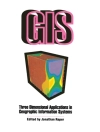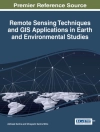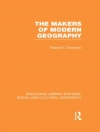The New Carbon Economy provides a critical understanding of
the carbon economy. It offers key insights into the constitution,
governance and effects of the carbon economy, across a variety of
geographical settings.
* Examines different dimensions of the carbon economy from a
range of disciplinary angles in a diversity of settings
* Provides ways for researchers to subject claims of
newness and uniqueness to critical scrutiny
* Historicizes claims of the 'newness’ of the carbon economy
* Covers a range of geographical settings including Europe, the
US and Central America
Spis treści
List of Contributors vii
1 The 'New’ Carbon Economy: What’s New?
Emily Boyd, Maxwell Boykoff and Peter Newell 1
2 The Matter of Carbon: Understanding the Materiality of t CO2e
in Carbon Offsets
Adam G. Bumpus 13
3 Making Markets Out of Thin Air: A Case of Capital
Involution
María Gutíerrez 41
4 Between Desire and Routine: Assembling Environment and Finance
in Carbon Markets
Philippe Descheneau and Matthew Paterson 65
5 Ecological Modernisation and the Governance of Carbon: A
Critical Analysis
Ian Bailey, Andy Gouldson and Peter Newell 85
6 Accounting for Carbon: The Role of Accounting Professional
Organisations in Governing Climate Change
Heather Lovell and Donald Mac Kenzie 107
7 Realizing Carbon’s Value: Discourse and Calculation in
the Production of Carbon Forestry Offsets in Costa Rica
David M. Lansing 135
8 Resisting and Reconciling Big Wind: Middle Landscape Politics
in the New American West
Roopali Phadke 159
Index 183
O autorze
Peter Newell is Professor of International Relations at the
University of Sussex. Prior to this he was Professor of Development
Studies at the University of East Anglia and held posts at the
Oxford University Centre for the Environment, the Centre for the
Study of Globalization and Regionalization at Warwick University,
the Institute of Development Studies (Sussex), FLACSO Argentina and
Climate Network Europe in Brussels. He is associate editor of the
journal Global Environmental Politics. His climate
publications include Climate for Change (2000), The
Business of Global Environmental Governance (2005), Climate
Capitalism (2010), and Governing Climate Change (2010).
Maxwell Boykoff is an Assistant Professor in the
Cooperative Institute for Research in Environmental Sciences Center
for Science and Technology Policy Research at the University of
Colorado-Boulder. In addition, he is a Senior Visiting Research
Associate in the Environmental Change Institute at the University
of Oxford. His publications include the books Who Speaks for
Climate?: Making Sense of Media Reporting on Climate Change
(2011), and the edited volume The Politics of Climate Change
(2009).
Emily Boyd is a Reader in Environmental Change and Human
Communities in the Department of Geography and Environmental
Sciences at the University of Reading. Previously Emily was a
lecturer in Environment and Development in the School of Earth and
Environment at the University of Leeds, and deputy director of the
Leeds University Centre for Global Development. In addition, Emily
is also a visiting researcher at Oxford University and the
Stockholm Resilience Centre. Her publications include Climate
Change a Beginners Guide (2010) and Adapting Institutions,
Governance and Complexity: Insights for Social-ecological
Resilience (2011, in press).












